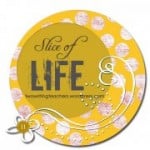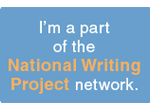 Today is my middle son’s birthday, and he has always had a very inquisitive nature (I once wrote a poem about him as a young child asking about God). Here, in no particular order, are some of the questions he has lobbed my way in the past three days.
Today is my middle son’s birthday, and he has always had a very inquisitive nature (I once wrote a poem about him as a young child asking about God). Here, in no particular order, are some of the questions he has lobbed my way in the past three days.
“What if Gaddaffi bombs us?”
Here’s a question that I wish I would not be asked, but I can’t just ignore it, either. He reads the newspaper. He has some idea of the world. I tell him that Libya does not have the capability to bomb us here, and that we are participating in the no-fly zone initiative to save lives. I tell him he is safe. I am not sure if I put him at ease, though.
“Do you believe there is life somewhere other than Earth?”
I told him that I often wonder, given the size and scope of the Universe, if there might be some form of life somewhere. I don’t imagine it will be little green men, but maybe something. He agreed, and then rattled some statistics about how many adults believe versus how many kids believe (I think he heard it on the radio).
“If I get a scholarship to a college for sports, but it is not the college that I want, can I turn it down?”
This still a number of years down the road, I assure him. Wow. I honestly tell him that it would be hard to say no to a free ride to college, and given our finances, it would be a difficult decision. He wants to go to LSU to play basketball. We can only hope some sort of academic and/or sports scholarships are in the cards.
“What is the meaning of life?”
I am not kidding. He asked this one morning. I was caught off-guard, but rattled on about love, peace, helping others, family and inner happiness. I sounded like a greeting card, I fear, but what could I say? That I have it figured out? I was honest, in that I don’t have it figured out.
I love this kid. He’s a fifth grader with a mind wide open.
Peace (in the questions),
Kevin
 Last year, at our school, we had the wonderful illustrator and writer Mordicai Gerstein come in and work with kids around creating picture books. While he was here, he donated a few books for the library, and then the librarian in turn passed one of them along to me. It is called I Am Arachne, and Gerstein is the illustrator (and the writer is Elizabeth Spires). As part of my
Last year, at our school, we had the wonderful illustrator and writer Mordicai Gerstein come in and work with kids around creating picture books. While he was here, he donated a few books for the library, and then the librarian in turn passed one of them along to me. It is called I Am Arachne, and Gerstein is the illustrator (and the writer is Elizabeth Spires). As part of my 

